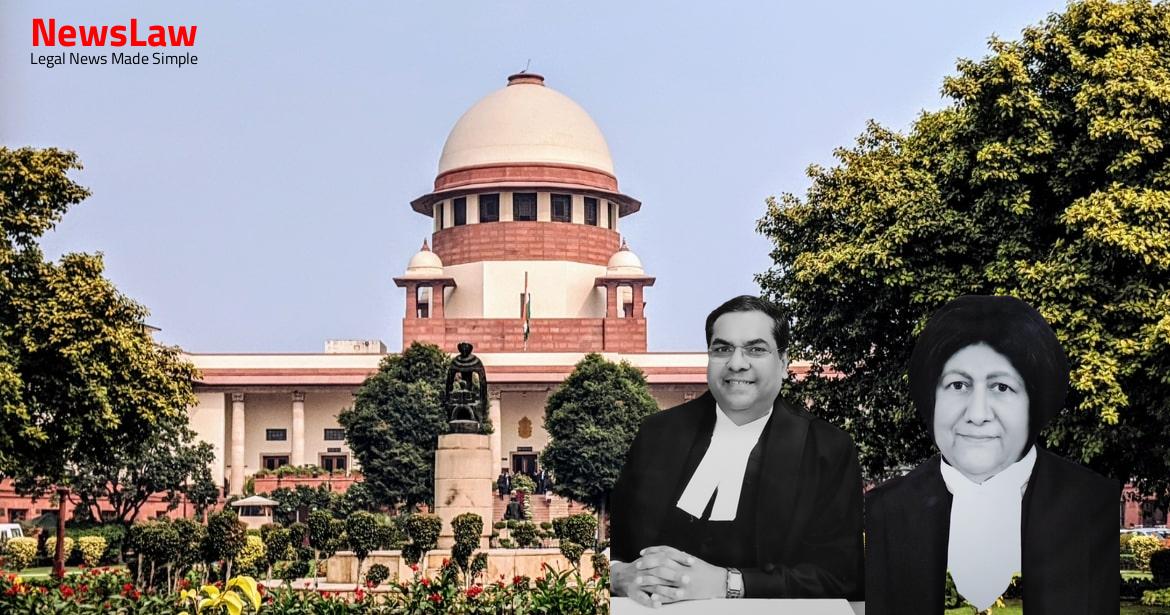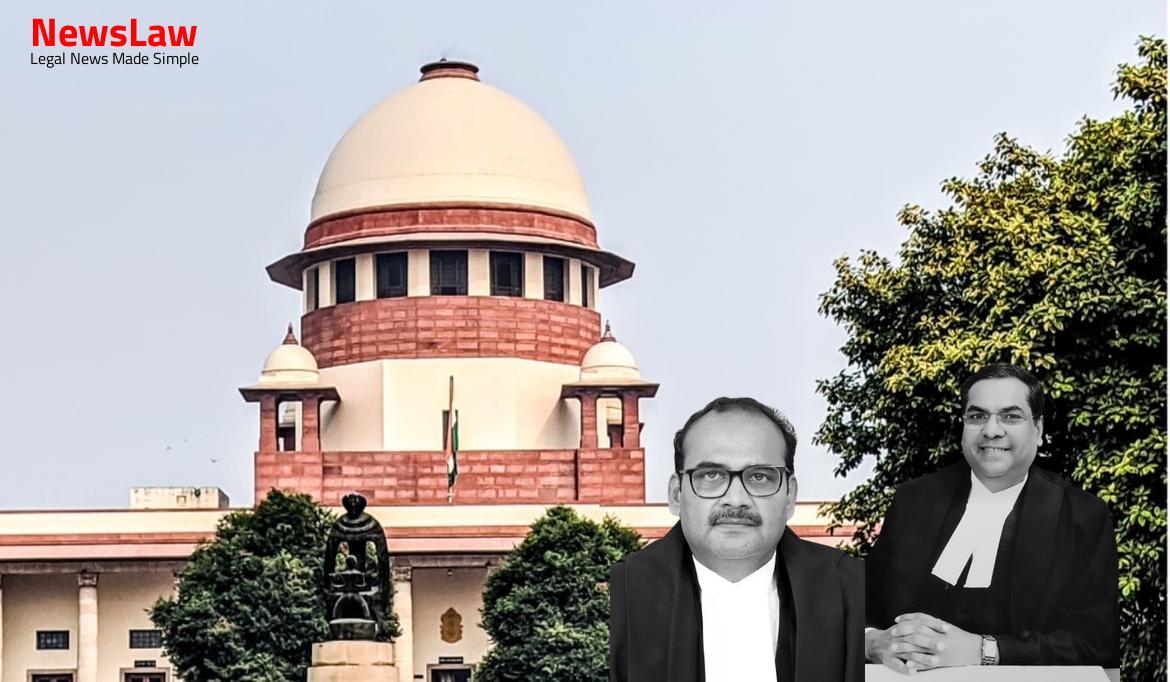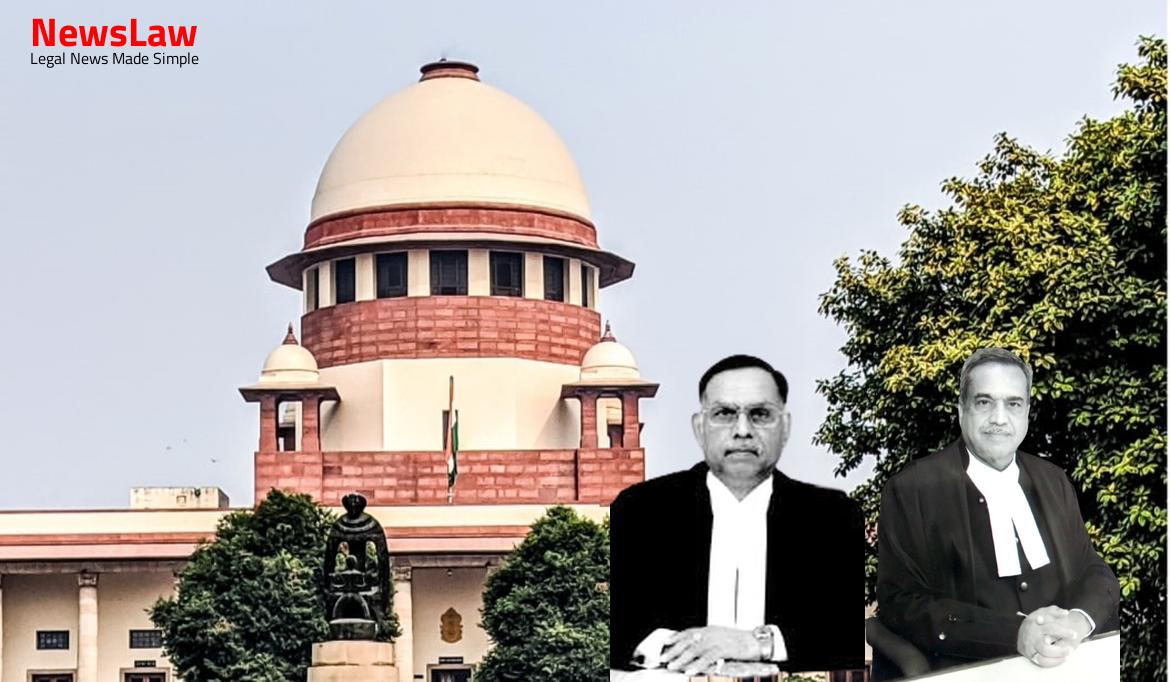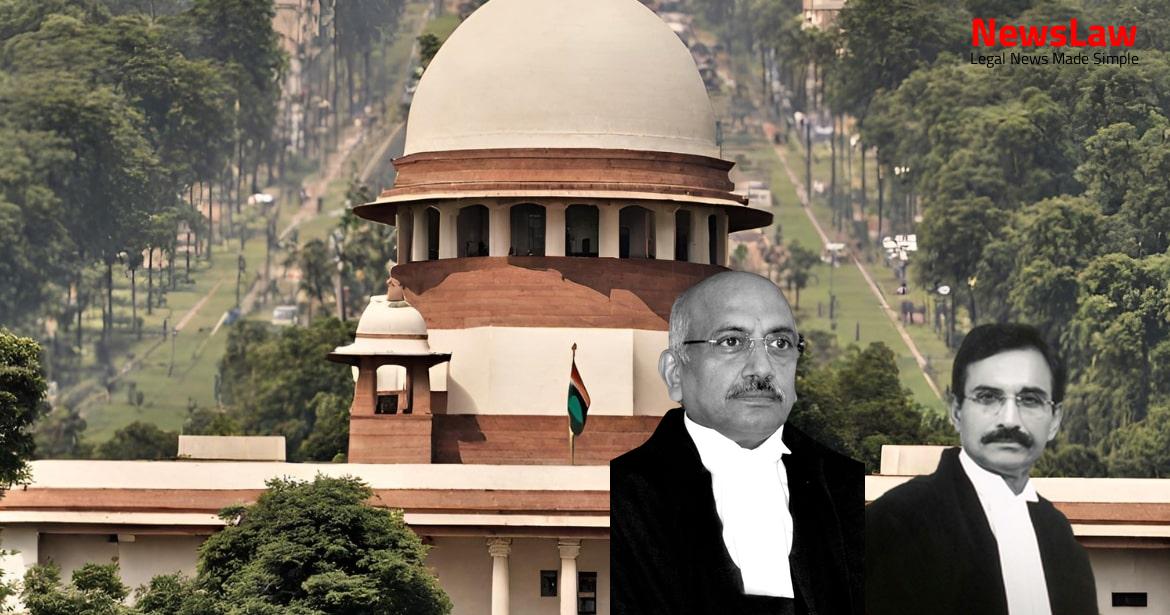In a significant legal battle between Raman Aithan Ashari and Bhandaram, the Supreme Court of India delivered a crucial judgement concerning the acceptance of a deed of gift. The case sheds light on intricate property law issues and establishes important principles for future cases involving gift transfer disputes. Let’s dive into the details of this landmark verdict.
Facts
- The High Court declared the deed of assignment executed by Raman Aithan Ashari in favor of the appellant as null and void.
- The deed of assignment was declared not binding on the Bhandaram.
- The respondents were allowed to recover possession of the suit property for and on behalf of the Bhandaram.
- The High Court, in the Second Appeal, does not re-analyze evidence and interfere with concurrent findings of facts.
- The deed of gift did not take effect as it had not been accepted; hence the cancellation and sale by Raman were held valid by the Trial Court.
- The Trial Court’s findings were affirmed by the First Appellate Court.
- There was no evidence of acceptance of the gift or possession by the Bhandaram, supporting the cancellation.
Also Read: Constitutional Authority in Rent Control Jurisdiction: Supreme Court’s Verdict
Analysis
- Acceptance of the gift by Malingan Chuzhali Ashari on behalf of the Bhandaram was legitimate and not onerous.
- The High Court correctly applied the condition precedent for interference under Section 100 of the CPC, which requires the existence of a substantial question of law.
- The High Court emphasized the importance of substantial questions of law in Second Appeal cases.
- The deed of gift clearly showed delivery of possession to the donee, and the donor had no authority to revoke it.
- The High Court rightly found that the gift was not onerous as per Section 127 of the Transfer of Property Act.
- The recital in the deed of gift indicated that possession was transferred to the donee, which was strong evidence of the transfer of possession.
- The High Court correctly recognized that the deed of gift was accepted during the donor’s lifetime, and there was no evidence of non-acceptance.
- The agreement did not provide for reversion of the property to the donor in case of failure to pay maintenance, as wrongly assumed by the lower courts.
- The High Court’s decision on the legal status of an idol being a minor for all purposes was upheld.
- The subsequent documents attempting to nullify the gift were deemed without authority and void by the High Court.
- The burden of proof was rightfully placed on the party contesting the validity of the possession transfer, as per the deed of gift.
- The High Court confirmed the trusteeship of Malingan Chuzhali Ashari and the donor Raman at the time of the gift’s execution.
- The lack of repudiation of the gift by any Bhandaram trustee supported the conclusion that the deed of gift was accepted by the Bhandaram.
- The courts below erred in assuming the burden of proof regarding the gift’s acceptance was on the respondents, contrary to the recitals and facts.
- The High Court correctly explained the application of Article 59 of the Limitation Act in the context of suits for cancellation or rescission.
- The High Court’s comprehensive analysis rightly upheld the validity and acceptance of the deed of gift in question.
- In the cases Md. Noorul Hoda vs Bibi Raifunnisa & Ors. and S. Sarojini Amma vs Velayudhan Pillai Sreekumar, it was clarified that the acceptance of a gift must be proven and cannot be presumed unless explicitly mentioned in the document of transfer.
- It was established that when a document of transfer by gift mentions the delivery of possession to the donee, a presumption of acceptance of the gift would arise unless overt repudiation of the gift is shown.
- Article 59 of the Limitation Act applies when a person affected questions a decree, instrument, or contract, setting a starting point of limitation from the date of knowledge of fraud or illegality.
- In the case of Prem Singh & Ors. vs Birbal & Ors., it was emphasized that Article 59 of the Limitation Act deals with voidable transactions based on fraud, coercion, undue influence, mistake, etc.
- It was stated that in a Second Appeal under Section 100 of the CPC, the High Court cannot substitute its opinion unless the conclusions are contrary to the law or based on inadmissible or no evidence.
- The presence of perversity in arriving at a factual finding gives rise to a substantial question of law, warranting High Court intervention.
- A Constitution Bench decision in Sir Chunilal V. Mehta and Sons VS. The Century Spinning and Manufacturing Co. Ltd. established the test for determining substantial questions of law.
- The points of contention regarding the acceptance and revocation of a gift, cancellation deed, limitations, and title under specific laws were clarified as questions of fact rather than substantial questions of law.
- The Second Appeal has been rightly allowed by the High Court.
- The Appellant is entitled to initiate proceedings against the vendor for damages and recovery of consideration paid.
- The Judgment is distinguishable on facts.
- It was found that the gift in the case was to take effect at a subsequent date.
Also Read: Analysis of Evidence in an Attempted Murder Case
Decision
- The Appeal is dismissed.
- The decision made by the Original Name is upheld.
- No further action is required.
Also Read: Ownership Dispute in Motor Vehicle Insurance Case
Case Title: ILLOTH VALAPPIL AMBUNHI (D) BY LRS. Vs. KUNHAMBU KARANAVAN
Case Number: C.A. No.-001429-001429 / 2011



